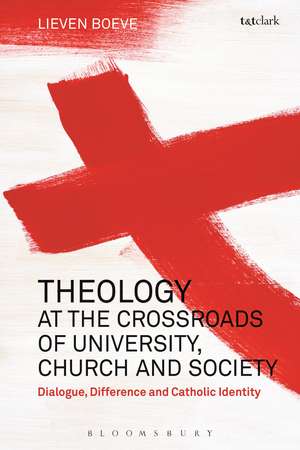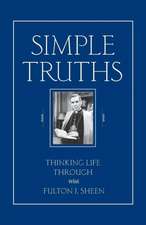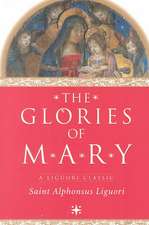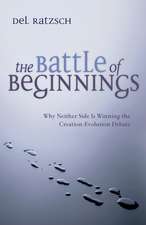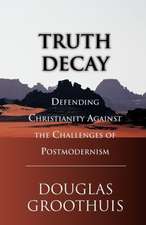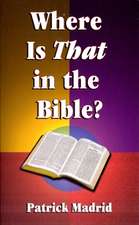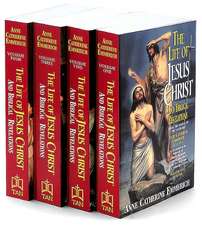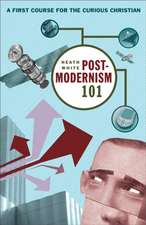Theology at the Crossroads of University, Church and Society: Dialogue, Difference and Catholic Identity
Autor Dr Lieven Boeveen Limba Engleză Paperback – 19 sep 2018
| Toate formatele și edițiile | Preț | Express |
|---|---|---|
| Paperback (1) | 237.57 lei 6-8 săpt. | |
| Bloomsbury Publishing – 19 sep 2018 | 237.57 lei 6-8 săpt. | |
| Hardback (1) | 773.88 lei 6-8 săpt. | |
| Bloomsbury Publishing – 24 aug 2016 | 773.88 lei 6-8 săpt. |
Preț: 237.57 lei
Preț vechi: 272.69 lei
-13% Nou
Puncte Express: 356
Preț estimativ în valută:
45.46€ • 47.20$ • 37.91£
45.46€ • 47.20$ • 37.91£
Carte tipărită la comandă
Livrare economică 22 martie-05 aprilie
Preluare comenzi: 021 569.72.76
Specificații
ISBN-13: 9780567684509
ISBN-10: 0567684504
Pagini: 248
Dimensiuni: 156 x 234 x 20 mm
Greutate: 0.35 kg
Ediția:NIPPOD
Editura: Bloomsbury Publishing
Colecția T&T Clark
Locul publicării:London, United Kingdom
ISBN-10: 0567684504
Pagini: 248
Dimensiuni: 156 x 234 x 20 mm
Greutate: 0.35 kg
Ediția:NIPPOD
Editura: Bloomsbury Publishing
Colecția T&T Clark
Locul publicării:London, United Kingdom
Caracteristici
In providing a comprehensive analysis of how theological discussion is shaped by its context, Boeve presents a new understanding of how we can understand contemporary theology
Notă biografică
Lieven Boeve is Professor of Fundamental Theology at the Faculty of Theology and Religious Studies, KU Leuven, Belgium. As of August 1, 2014, he has been appointed the Director-General of the general office of Catholic Education in Flanders (Katholiek Onderwijs Vlaanderen). His research concerns theological epistemology, philosophical theology, truth in faith and theology, tradition development and hermeneutics. From 2005 till 2009 he served as president of the European Society for Catholic Theology. He is the author of Interrupting Tradition. An Essay on Christian Faith in a Postmodern Context (2003), God Interrupts History. Theology in a Time of Upheaval (2007), Lyotard and Theology (2014) and Theology at the Crossroads of University, Church and Society (2016). He has co-edited various volumes, of which the most recent are: Questioning the Human: Toward a Theological Anthropology for the Twenty-First Century (2014) and The Normativity of History. Theological Truth and Tradition in the Tension between Church History and Systematic Theology (2016). On September 17, 2015, the European Society for Catholic Theology awarded him the biennial prize for the best theological book of the past two years, for his monograph Lyotard and Theology.
Cuprins
IntroductionIn the Margin and at the CrossroadsPart 1. Foundation, Horizon and OrientationI. Foundation: Revelation as God's Dialogue with Humanity and HistoryII. Horizon: The Challenge of Plurality and DifferenceIII. Orientation from the Margin and at the Crossroads of University, Church and SocietyPart 2. At the Crossroads of University and ChurchIV. More Room for Theology in the Church? A Critical-Empathetic Reading of Theology TodayV. The Swan or the Dove? Concerning the Difficult Relation Between Theology and PhilosophyVI. Mutual Interruption: Towards a Productive Tension Between Theology and Religious SciencePart 3. Theology and Society: The C of CatholicVII. Catholic Identity in a Post-Christian and Post-Secular Society: Four Avenues and a Step-by-Step PlanVIII. Qualitative Pluralism as Hallmark of Catholic EducationIX. Religious Education TodayConclusionX. Why Benedict XVI Resigned: Cognitive DissonanceBibliographyIndex
Recenzii
Lieven Boeve has provided a comprehensive grasp of the situation of Christian theology in the world today . offer[s] an insightful look into the life of the Church at the margins.
It is a major strength of this collection that Boeve is able to open up a series of complex conversations without being reductionistic toward the various discourses that theology seeks to address. If one finishes the book with the sense that the difficult conversations needing to be had in the university, the church, and society are really just beginning, then this is perhaps as it should be. There is so much dialogue to be had, and this insightful documentation of what it will take to bring a plurality of voices into conversation with one another is the right place to start.
It is a major strength of this collection that Boeve is able to open up a series of complex conversations without being reductionistic toward the various discourses that theology seeks to address. If one finishes the book with the sense that the difficult conversations needing to be had in the university, the church, and society are really just beginning, then this is perhaps as it should be. There is so much dialogue to be had, and this insightful documentation of what it will take to bring a plurality of voices into conversation with one another is the right place to start.
